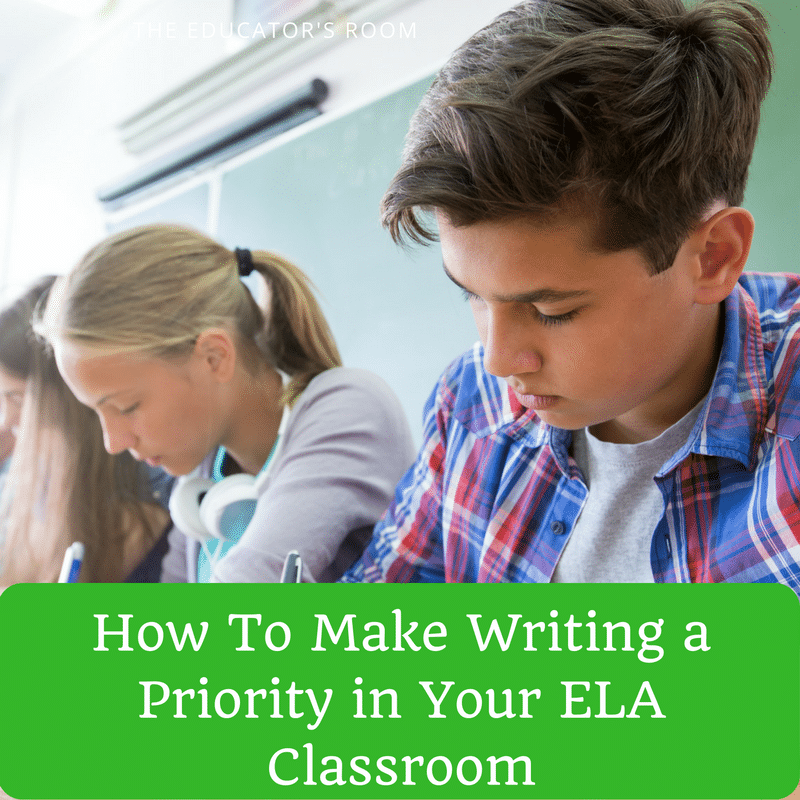For many years of teaching, I would follow the same formula over and over throughout the year with my classes: teach a unit, finish unit, assign paper on that unit. Writing happened, but it was the thing that we did after we did the other stuff.
What this means is that writing mostly happened at home, that we didn’t do much practice writing in class, and that we were already moving on to the next unit when students were working on that paper. They saw the final paper as a test, but also as something that they handed in and never really thought about again. Rather than seeing writing as a process, or even as a priority in my class, they saw it as pure assessment and as something that was maybe even the last priority.
Over the years, I have worked to get writing to the top of the list. It’s no longer the thing we do after the other stuff—it’s the reason why we do the other stuff. Here is how I make writing a priority:
Do some write-to-learn every day. I do quick writes and freewrites daily. I really believe that the more students write, the more comfortable they are writing, and the more comfortable they are writing, the better they are at writing. So we write for at least five minutes every day, and usually more than that.
[fusion_builder_container hundred_percent=”yes” overflow=”visible”][fusion_builder_row][fusion_builder_column type=”1_1″ background_position=”left top” background_color=”” border_size=”” border_color=”” border_style=”solid” spacing=”yes” background_image=”” background_repeat=”no-repeat” padding=”” margin_top=”0px” margin_bottom=”0px” class=”” id=”” animation_type=”” animation_speed=”0.3″ animation_direction=”left” hide_on_mobile=”no” center_content=”no” min_height=”none”][bctt tweet=” The more students write, the more comfortable they are writing” username=”EducatorsRoom”]
Revolve the class around writing rather than the other way around. By designing lesson plans that are all about writing—examining it from the inside out with creative writing, analyzing texts as mentor texts, always coming back to how students can learn from what we study in order to improve their own writing—I make sure that writing is the focus of every lesson.
Design every lesson with the end goal in mind. When I think about what I want for my students, I think about what I would want them to remember if I were to run into them on the street in five years or more. I honestly couldn’t care less if they have forgotten the name of Hamlet’s best friend, but if they tell me that had the tools to write college essays, I will be thrilled. In the past, when I assigned an essay at the end of the book, I had done nothing to prepare students to write that essay besides just assigning them the book. But when I plan classes with the goal in mind, I make sure that they get the tools to complete whatever writing assignment they’ll be assigned.
Show them what it means to go beyond their comfort zone (by modeling it yourself). Writing is scary and uncomfortable and it’s not always clear what the right answers are. Teaching writing is even more terrifying. I could easily just give them some questions on a book and call it a day, but I keep pushing them because I know that writing is such an important skill. They’re terrified to write an original poem and read it to their peers? Then I’ll go first. I know my poem isn’t great, but I point out the parts that I’m proud of and listen to their feedback on the rest. I show them that it’s okay to try something new.
It’s so easy for me to slip into a daily routine of read text, answer questions on text, write essay on text, move on. I need to constantly push myself to make writing the center of my classroom, but when I do, it is a much richer and meaningful experience for all of us.
[/fusion_builder_column][/fusion_builder_row][/fusion_builder_container]





